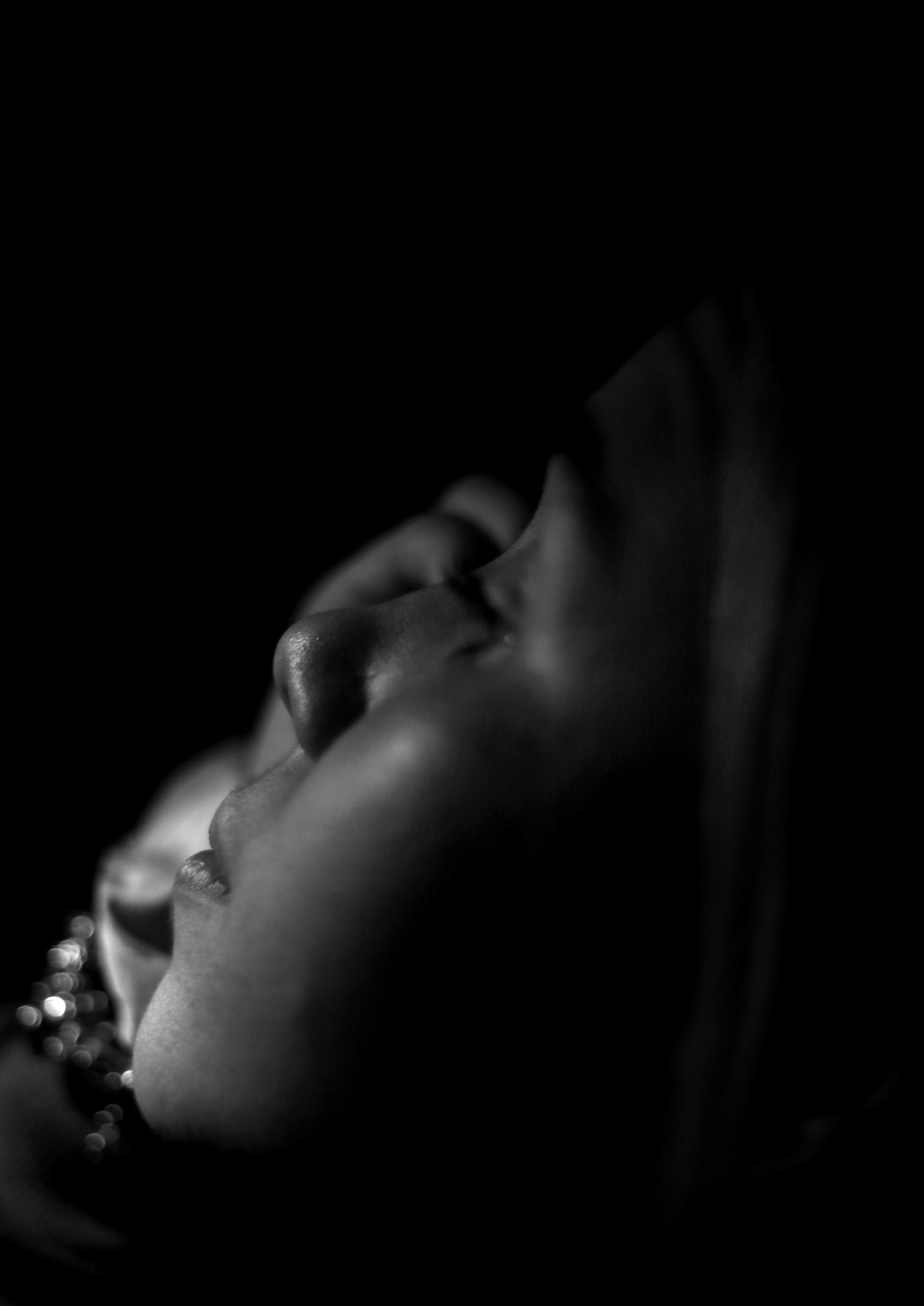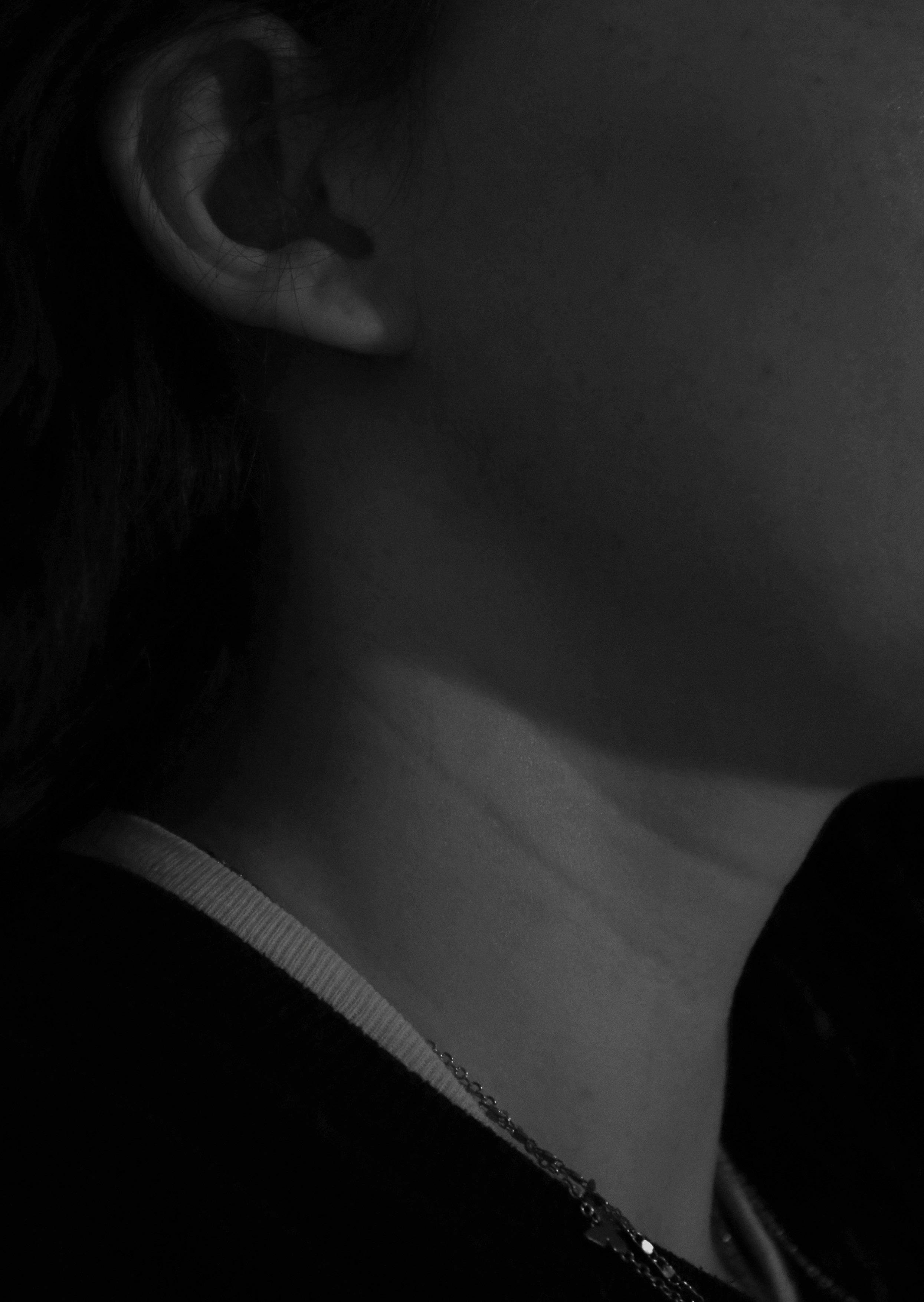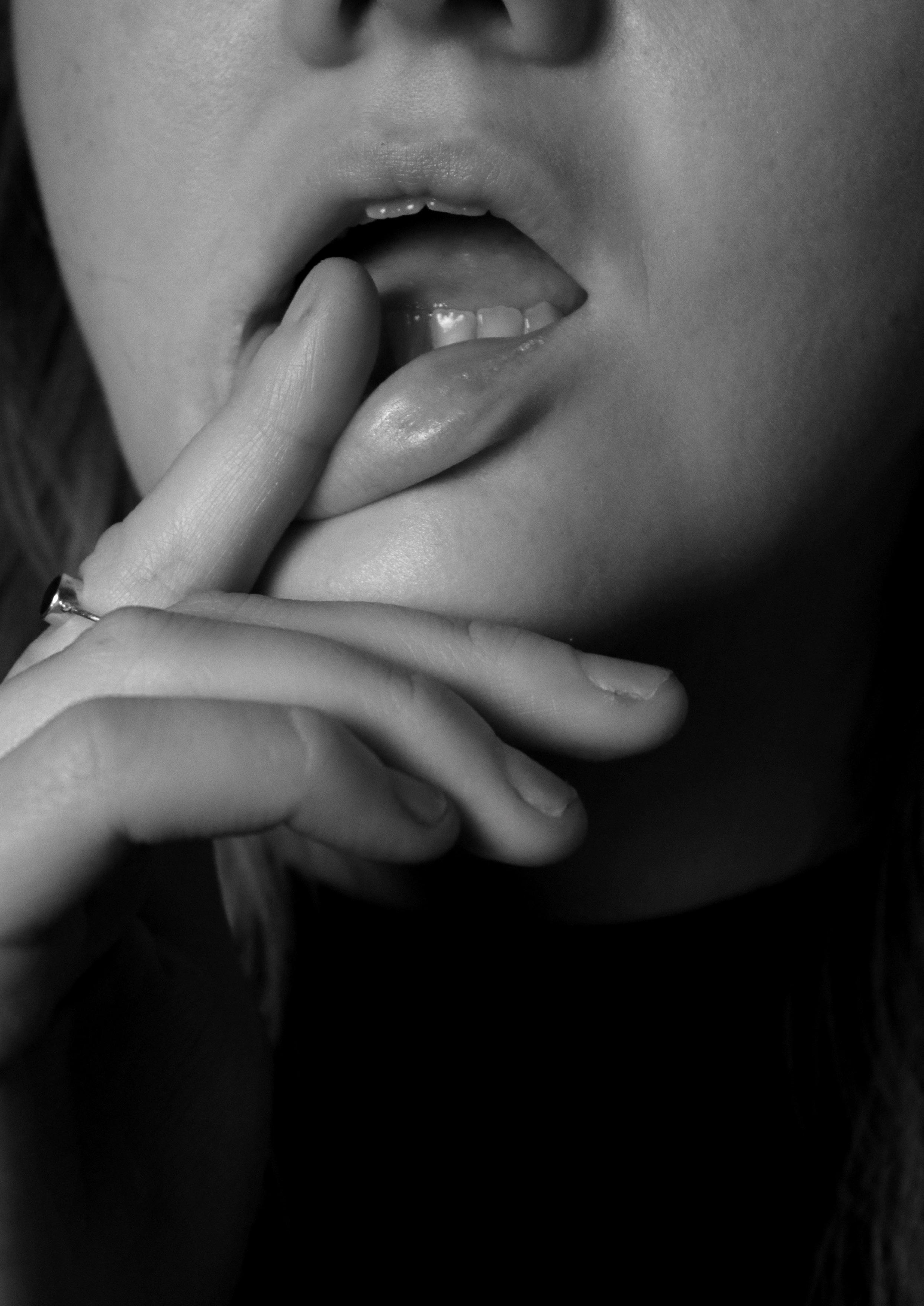




With the rise of terms like sober curious, I thought it would be only fitting to create a singular publication that brings attention to the conversations that are not easy to talk about. I realised the importance of continuing the conversation about sobriety from Kate Morgan, a student that features within Sober who said that she had so many conversations with her parents where nothing was ever said. She explained it in the terms that her parents so desperately wanted to help her through the bad times, but they simply didn’t know what to say.
Scotland has a massive alcohol problem, but when looking at the full picture, Scotland has a culture that is without a doubt pro-alcohol. I created Sober in order to highlight the ugly and very real side to alcohol.
I wanted Sober to be a reflection of issues that I have seen within my personal life as well as struggles that are not discussed as often as they should be within the media. I spoke to a number of Scottish women who were so open and so incredibly raw in the way in which they shared their story with me.
We hear from Kate Morgan, a student from Aberdeen who became embedded within the typical student drinking culture and her journey to sobriety in her early twenties. Rachel Booth opens up about her experience of growing up with an alcohol-dependent parent and the continuous effect that it has had on her life since her mum got sober thirteen years ago. I bring light to my recent diagnosis of complex PTSD that stems from a family member passing from excessive alcohol consumption. Finally, to end on a somewhat positive note, we take a deep dive into why Gen Z are saying ‘no’ to alcohol and if Scotland is finally heading in the health-forward direction.
Please reach out if you are struggling. Help is out there.
Model: Fern Mutch
It’s either me or alcohol Mum, it’s your choice!
Rachel Booth discusses her experience of growing up with a parent dependent on alcohol and how it has effected her view on Scotland’s pro-alcohol culture
22
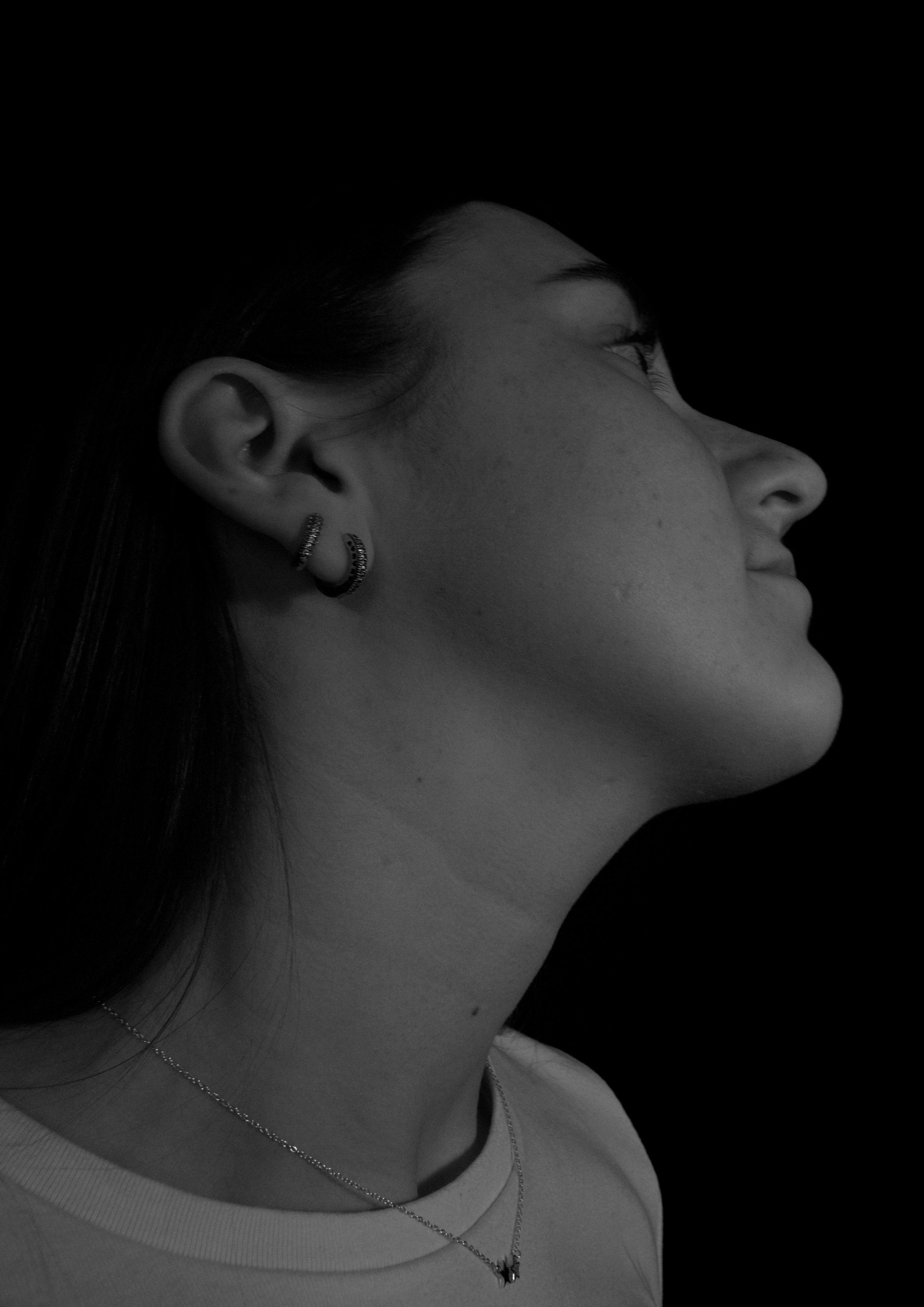
I don’t remember a lot of my teenage years because of alcohol
Kate Morgan didn’t know that she had an alcohol problem until her therapist questioned it. Since then, she is completely sober and she has never felt more herself.
22
12
Photo spread
Soundless until that one afternoon in July
Editor of Sober, Kirstie writes about her experience with complex PTSD following the death of her beloved uncle from excessive alcohol misuse
14
Photo spread
20
28
The pressure to drink is still there, but is Gen Z’s sober-curious mindset exactly what Scotland needs?
The pressure to drink is still prevalent but Gen Z are saying ‘no’ to booze - here’s how and why
contents
How does that make you feel?”
“Alright, I guess...” I reply to the woman sat staring at me with a curious expression.
“What does your body feel right now?”
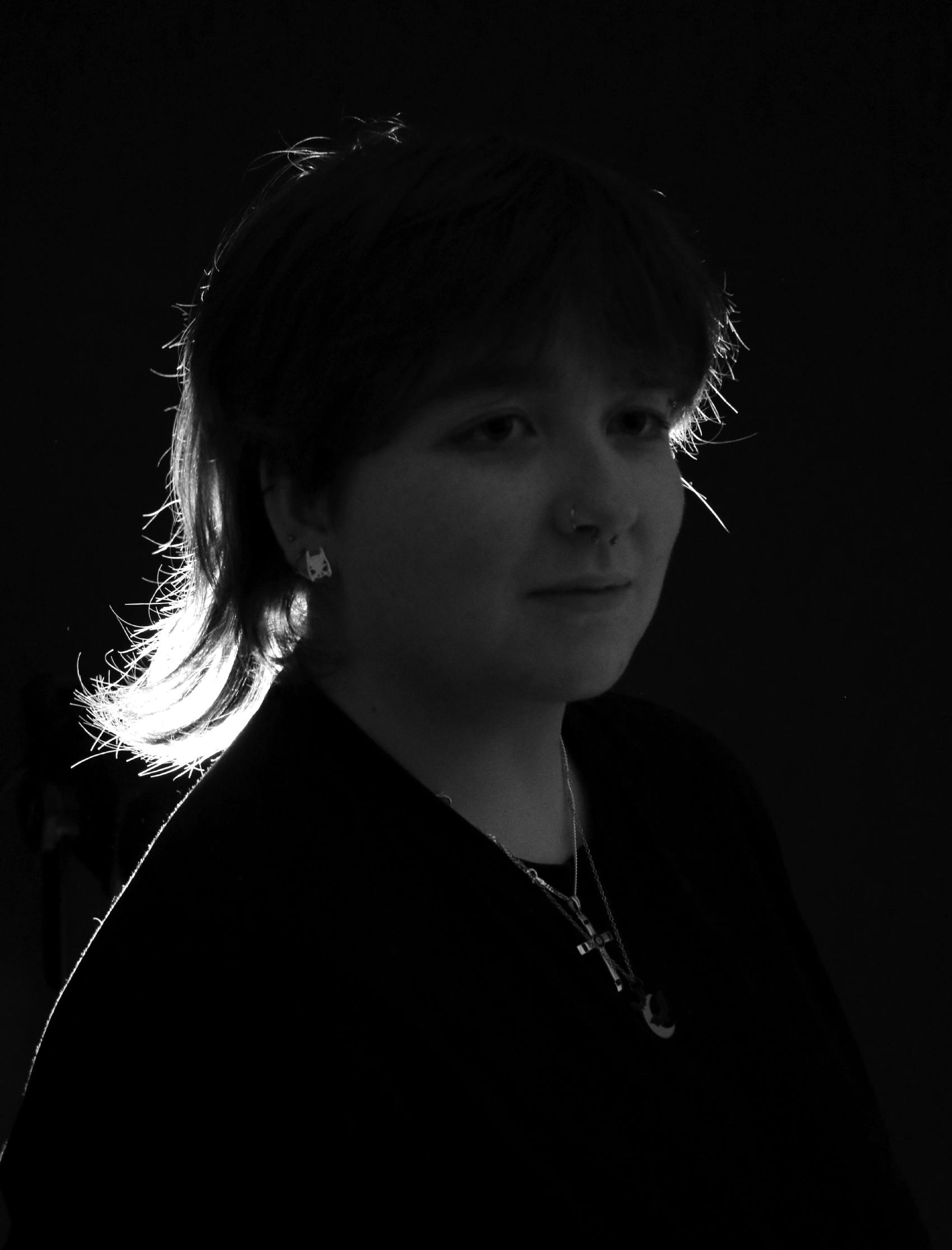
“I don’t really know, full of adrenaline I would say,” I answer whilst avoiding eye contact, looking at the blank wall, silently wishing I could somehow walk through it.
“How often are you sleeping?”
“Enough, like 5 maybe 6 hours,” I exhale as I’ve just
Kate Morganfinished a twelve-hour shift.
“Are you eating enough?”
I look at the woman, taking in her thinning hair which contrasts with her plump figure and nod slowly.
“How much alcohol are you drinking?”
“The normal amount?” I reply hesitantly.
“How much is normal?”
“Like I would say I have a couple every night, usually more on the weekends…
I’m on placement a lot so if I’m off then I’ll have more,” I try to stop myself from saying too much but it just blurts out.
“Do your friends drink the same amount as you?”
“I don’t really like drinking with them that much,” I’ve now bitten off so much of my fingernail that it starts to bleed.
She writes on a blank sheet of paper until she can barely write anymore, almost overanalysing the situation as much as I’m overthinking this interaction.
“For how long have you been drinking by yourself?” She asks, keeping her head down but peering over the edge of her glasses.
“Since I was like seventeen maybe but it’s not every day, like I haven’t drank for 3 years straight… you know?”
“And is it always a couple?” She leans forward in the chair, an awkward creak breaking the silence.
“I mean once I’ve opened the bottle, like I may as
well just finish it. There’s only three glasses in a bottle anyways.” “You said you have a couple, how much is a couple to you?” She questions.
“A couple is like a bottle or two of wine, or like a little bit of wine and 2 or 3 vodkas I would say…”
It was a Friday night when I walked into my friend from school’s house, instantly I’m overwhelmed by music that was a little bit too loud and the smell of cheap perfume. He greets me with a shot of tequila and a hug. I take the shot. I free pour a vodka lemonade for myself and begin dancing. I’m fifteen and one of my other friends got her sister to buy cigarettes from the local off-license. I smoke one and immediately I don’t like it. Throughout the night, I get progressively drunker and crave the taste of cigarettes. By 2am, I can’t remember what I’m saying, but I pour another vodka lemonade and steal another cigarette. ‘Blacking out’ is very different from passing out. Those who consume alcohol
in large quantities in a short period of time will typically experience a ‘blackout’. In the moment, a blackout can be described as losing consciousness, blurred vision, slurred speech and ill coordination. After a blackout, or the day after, people have described it as not being able to remember a period of their night. They will usually feel anxious due to the loss of memory and will have to be retold their night to be able to know what happened.
Kate recalls that she does not remember a lot of her teenage years due to blackouts. She is very open about her past as she feels like she needs to “take accountability”, however as she opens up, she is bouncing her leg and picking her fingernails. One night that stands out for her despite her memory loss is her first night in student accommodation. She moved in around 10am, unpacked and took a shower. Her accommodation offers the new students a ‘Welcome Pack’, which includes information about Aberdeen, a Wi-Fi password, noodles and a hard seltzer. Prior to getting ready for dinner, she drinks the seltzer. Quickly. Her mum and dad want to take her out for their ‘final’ meal together to congratulate her on her independence so they
wander down Union Street to a nice Italian restaurant. The food was good, but the beers are flowing so that’s even better. One too many later, Kate is stumbling out of the restaurant. Her parents wish her all the best and say their goodbyes and head back home, a short thirty-minute drive. Kate heads back to her flat and has been told that she continued drinking with her new flatmates, bonding over drinking games and shots of tequila.
Kate wakes up the next morning in her bed. Her own bed. Her own bed in her parents’ house. With the hangover from hell, she is scared to ask her parents what happened but she does. They tell her that the police found her crying on the ground outside of her accommodation and an unknown person called them. Once she collected herself, she made her parents take her back to the ac-
commodation. The tension was very present in the flat that day, and for the next week. She messages her friend from another flat to say sorry. No reply.
Still to this day, Kate does not know what happened that night.
Another incident further down the line was when Kate woke up in her bed slightly hungover with cherry red nail polish on her fingernails. Kate does not own cherry red nail polish, or nail polish at all for that matter.
Perhaps a warning sign, her cousin’s engagement party. She couldn’t walk and her dad had to pay the taxi driver an extra £50 to take her home. She was 16.
I stared ics Anonymous site, debating it was not. I hoovered mouse tact Us’ thought is the worst can happen?’. ly concluding worst things can tell too far overreacting. an email further the protocol ing an I receive following forming is a walk-in Aberdeen, next to Throughout in the
stared at the AlcoholAnonymous webdebating whether a good idea or hoovered the mouse over the ‘ConUs’ section and thought to myself ‘what worst thing that happen?’. Eventualconcluding that the things that they tell me is either I’m far gone or that I’m overreacting. I send email asking for further information on protocol of attendAA meeting. receive a reply the following morning informing me that there walk-in meeting in Aberdeen, ironically to a nightclub.
Throughout the week, lead up to the
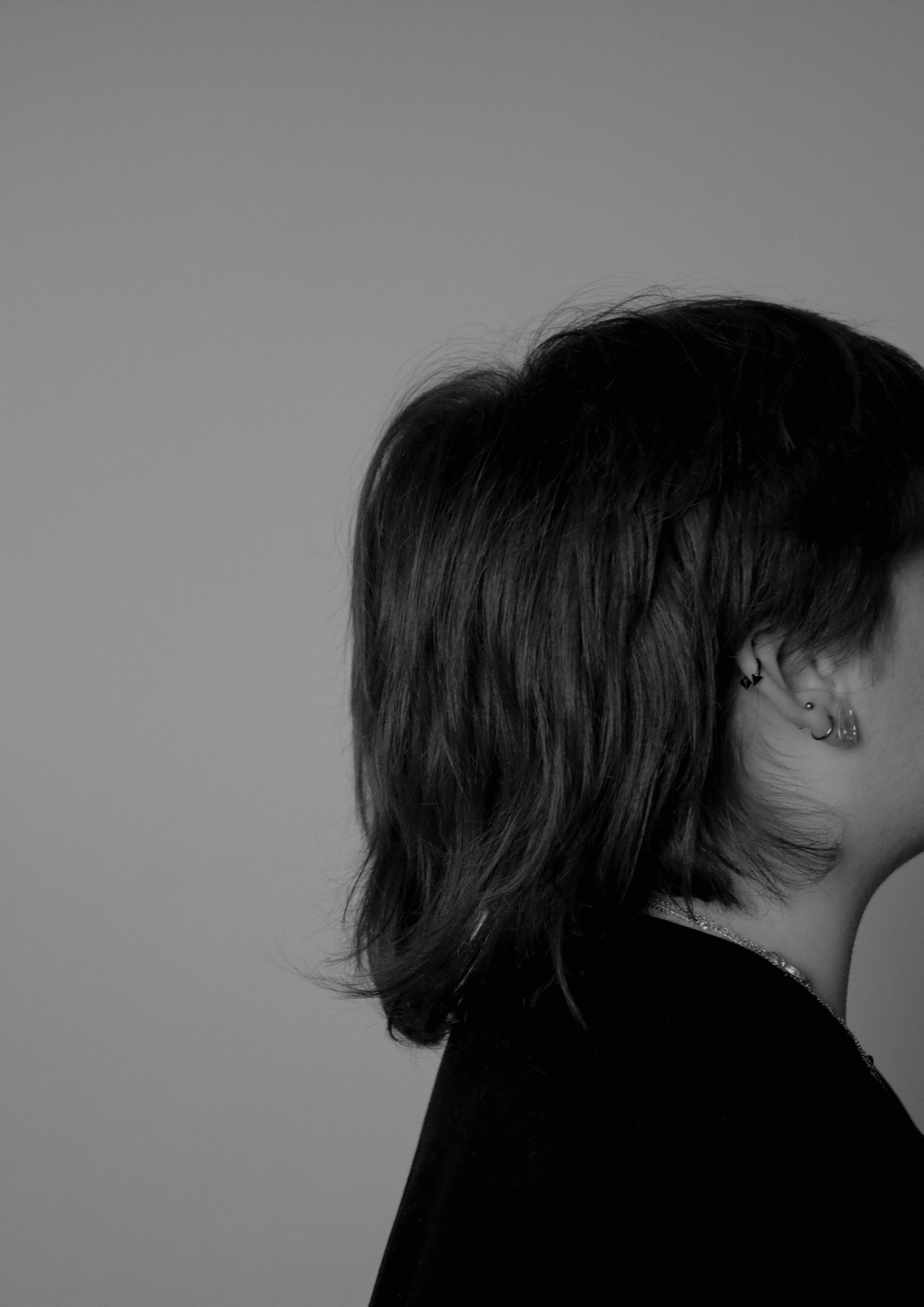
meeting, I question how I have let myself get to this point and cringe with anxiety. The dreaded day drags on until it is time for the meeting. I deliberately take my time walking up to the door. The receptionist greets me with a welcoming smile as I trudge my heavy legs towards her desk. I’d contemplated all week on what to say to her. I could be like the alcoholics in the movies and just state the fact “I’m Kate and I am an alcoholic” or I could keep it quiet by simply asking “Can I speak to one of the professionals here?”.
Despite spending one-hundred and sixty-eight hours of overthinking this very moment, the woman takes the awkwardness out of the interaction and asks me to take a seat behind her and says that one of her colleagues would be out in a couple minutes. A grey-haired man, maybe in his late fifties or early sixties dressed in all black led me into a boardroom which was bizarrely eery. I took a seat in one of the eight chairs, opposite the man who introduced himself as Stewart.
“You look young,” he observed out loud.
“Yeah… I’m 20.”
“That’s very young to be here,” he replied with a surprised expression on his wrinkly face.
I nodded whilst picking at my fingernails. “So… what brings you here?”
I pause for a moment before replying: “My therapist…um, thinks I might have an alcohol problem.
“I drink pretty much every day and I find it very difficult to stop once I’ve started.”
“Ok… and what are you expecting to get out of AA?” he asked leaning forward whilst maintaining eye contact.
I find it very difficult to stop oncedrinkingI’ve started
“I don’t want to live like this. I can’t do it. my relationships, I don’t remember my nights just can’t do it anymore.”
Now he is the one taking pauses, “Ok…,
“Since you are young, I think it may be best to try and cut down your drinking, instead nating completely. What are your thoughts
“I don’t think you understand me… If I have
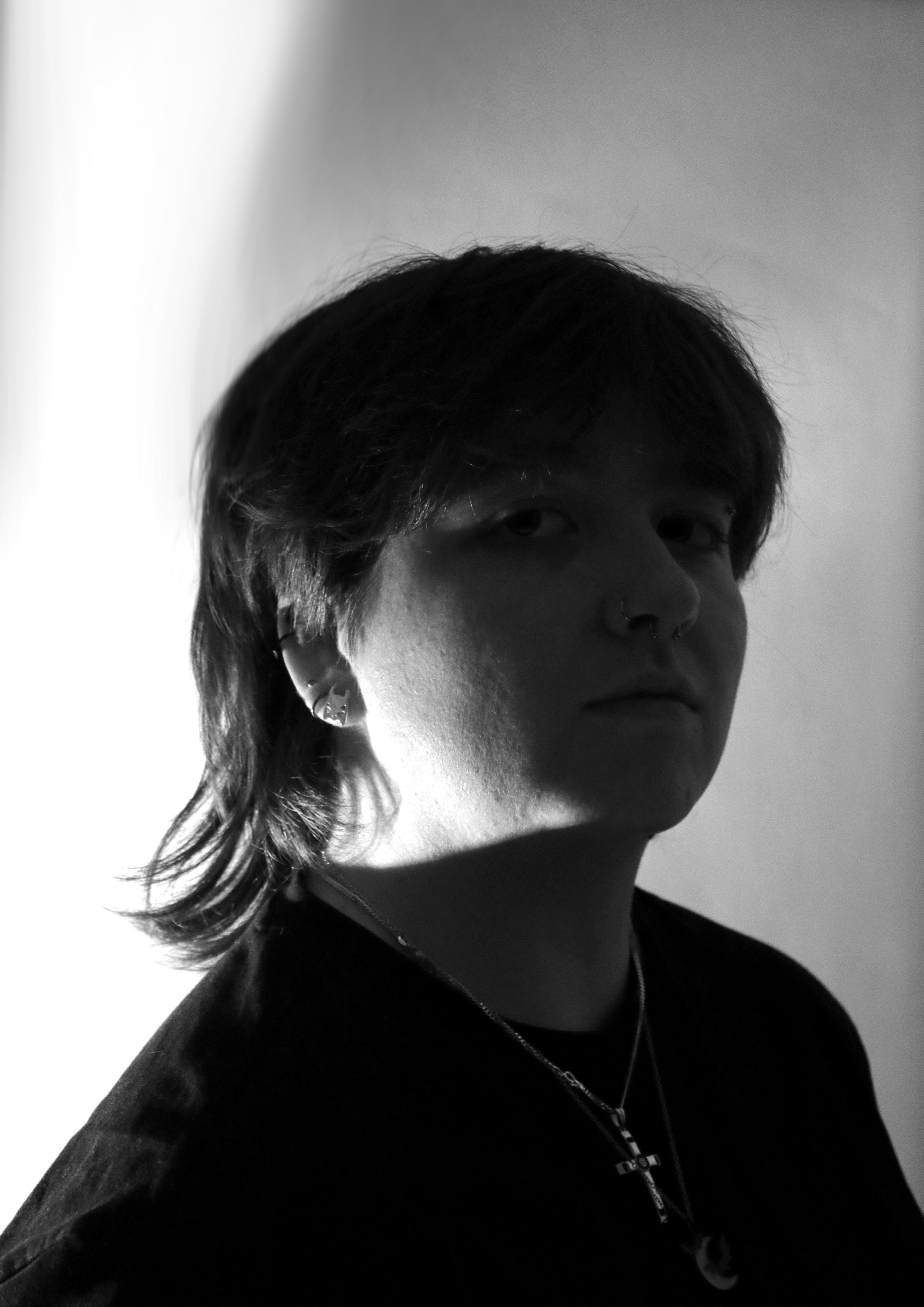

drink, I cannot stop. As soon as I feel that feeling, like I need more of it,” I exclaim feeling frustrated.
He nods and says he will be back in a moment, leaving the room and leaving me to completely overthink the last few years. Do I actually have a problem with alcohol? Maybe I just don’t have enough willpower. I’m a student, like maybe it’s normal how I’m feeling. My friends drink the same as me and they don’t have a problem. I was sober for 3 months last year, I could do it again. Nobody knows how much I drink, I could keep it a secret for longer.
The loud silence within the room and the loudness within my head is replaced with Stewart re-entering the room with a bundle of paper.
“Ok so we have this questionnaire that we give newbies to fill out and from your answers, we can work out where you are at. I don’t expect your score to be higher than fifty but we’ll deal with it once we process the answers,” he states as he pushes me the bundle of paper towards me.
The questions were stereotypical alcoholism questions like why do you drink, how much do you drink, what do you drink etc., I filled it out with fifteen minutes and hand it back to Stewart.
He reads over my answers and calculates my score.
“Ok. So, I think we have a bigger issue on our hands than I originally thought. You scored seventy-two.”
I looked at him as though it was obvious that the issue is bigger than he thought.
“I’ll be back in a minute, I’m going to print you off some resources to work through at home and we could set up another one-to-one meeting where we speak about things in detail?”
I nod and begin to pick at my nails again.
Ten minutes later, Stewart came back with what must have been a fifty-two-page document. He explained it to me and arranged another meeting for the following week.
“Have you tried joining Facebook groups? One of my other clients has had similar experiences as you and has found a group specifically for young women with alcohol issues. I could ask her for the name if you like?” the plump woman says empathically.
“Yeah after AA, I joined one and it has been surprisingly really helpful. I haven’t like spoke out or anything like that but just seeing that other people go through this like I don’t know it’s quite interesting I guess”.
“Good! That’s really great! How long have you been sober so far?” she smiles as though she truly is happy for me, something I haven’t experienced in a while.
“I mean just two weeks… it’s not long but it’s something!”.
“Kate, that is amazing! You need to give yourself credit!” she looks as though she wants to hug me.
The anxiety washed away from Kate when she described that sobriety has gave her “everything”.
Her hobbies whilst misusing alcohol involved alcohol. Her hobbies now that she has been sober for almost 2 years include reading, collecting comics, and crocheting. She dropped out of university and began a college course which doesn’t involve long twelve-hour shifts. She got a nighttime job to help with temptations. Though, she wishes she didn’t have to go through all of the difficult times, she could not be more grateful for sobriety. Kate is very mature in that she now takes accountability for her actions. Throughout our interviews, she continuously reinstated that it was never anyone else’s fault that she went down that route. It was her decisions and choices that made her take the shots, drink the beer and down the bottle of wine.
Sitting opposite me, Kate smiles from ear-to-ear as she says: “I have never felt more myself than I do now.”
Icould hear mum rumbling about in her old bedroom, adjacent to the one I’m currently in. My full body felt like it was on fire. I’m both too hot and too cold. My hands are sweating but my blood feels icy. Mum is calling my name asking for help but I physically cannot put one foot in front of the other. It’s like I’ve frozen in time. This happened when gran died. Sometime later I make my way past the chest of drawers tarnished with cigarette burns and adorned with cases of bullets from previous pigeon shooting contests. As my footsteps creak on the ancient wooden floorboards that were now covered in a vinyl linoleum, I could hear mum ask:
“Kirstie, can you grab me the Stanley from the living room please darling?”
I nod even though she couldn’t see me. I quickly grab the knife for her to ensure my papa doesn’t notice what I was holding. I walk anxiously to the door of the room and almost cut my foot when I went to pass the knife to her.
“What are you doing?” I ask, as I wipe the sweat from my hands.
“I thought I’d clean it up just to save Dad from seeing it…” She says looking up at me confusingly.
“Isn’t it a bit soon? He just passed yesterday” I question.
“If we leave it any longer, it’ll just begin to smell” she states as though it wasn’t a big deal.
I move the cupboard so that she could cut the carpet that was matted in the corner of the room, alongside old cigarette butts and cobwebs. I take note of her shaking hands but don’t mention it. I can’t tell if it was due to the shock of it all or because she hasn’t eaten a proper meal in days, probably both, I thought. She continues cutting the carpet, the only noise in the room was the blare of the television that papa was watching and the noise of the knife going through soggy carpet. The room is eery, as though there was a third person in there even though in my
conscious mind, I know there isn’t. Mum collects the carpet and folds it up and urges me to put gloves on. The bright blue gloves contrast with the dullness of the room, even more with the burgundy blood branded on the same carpet that my gran had given birth to my mum on.
“Take it out the side door and fling it on the grass love,” She says pointing at the door that only the postman uses.
I nod and grab hold of as much carpet as I can. I grip it with such might that a dribble of blood made its way to my converse. I wipe it away quickly. I place it gently on the grass and stand for a while. Alone. I just stare at the singed carpet and twiddle the ring on my finger.
“Kirstie, can you give me a hand here?” My mum yells from the door.
I turn around and see her trying to bring the mattress over. It is resting next to the postman’s door – I had walked past
it, not anymore pattern walk light-headed to ask sentence.
“I’m bucket to try matches lighter ready…” completely
I nod, really my I blink pick my two one, the so saturated it can’t fire mattress one already. but once I gather that papa’s on top attempt fire the
not even recognising it anymore due to the dark pattern of blood. As I walk over to her, I feel so light-headed that I have ask her to repeat her sentence.
“I’m going to get a scrub bucket ready if you want try burning it all. There’s matches and a candle lighter down there already…” She says looking completely through me.
nod, although I didn’t really acknowledge her as vision had blurs.
blink away the tears and pick up the matches that papa had bought about years ago and strick one, attempting to light carpet. The carpet is saturated in blood that can’t catch a light, the can’t ignite. I try the mattress next, finding corner that had dried already. The flame catches quickly burned out once it reaches the blood. gather up a pile of sticks that used to decorate my papa’s estate and pile them top of the mess in an attempt to create a solid that will burn through reminisce. As the fire
one afternoon in July
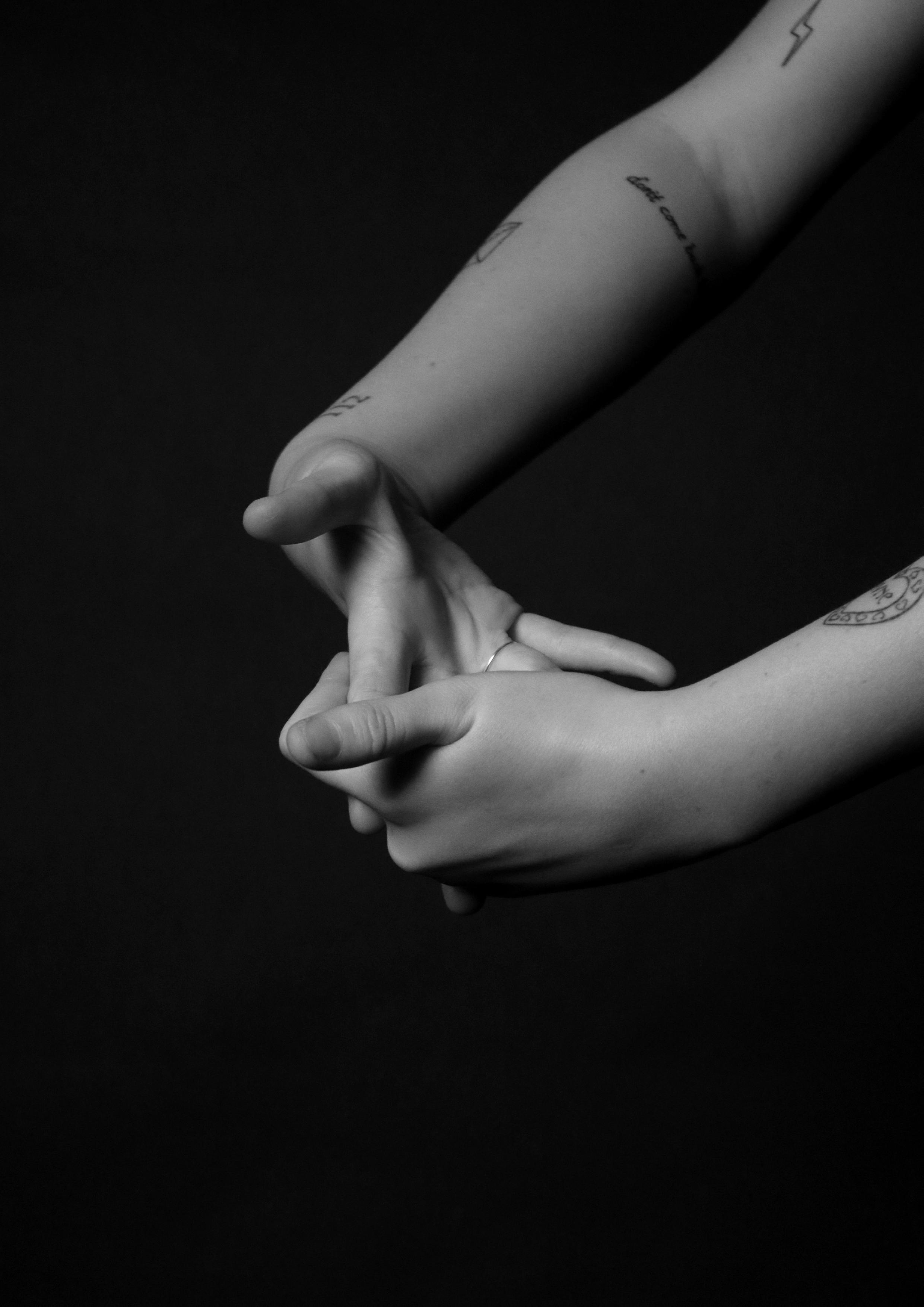
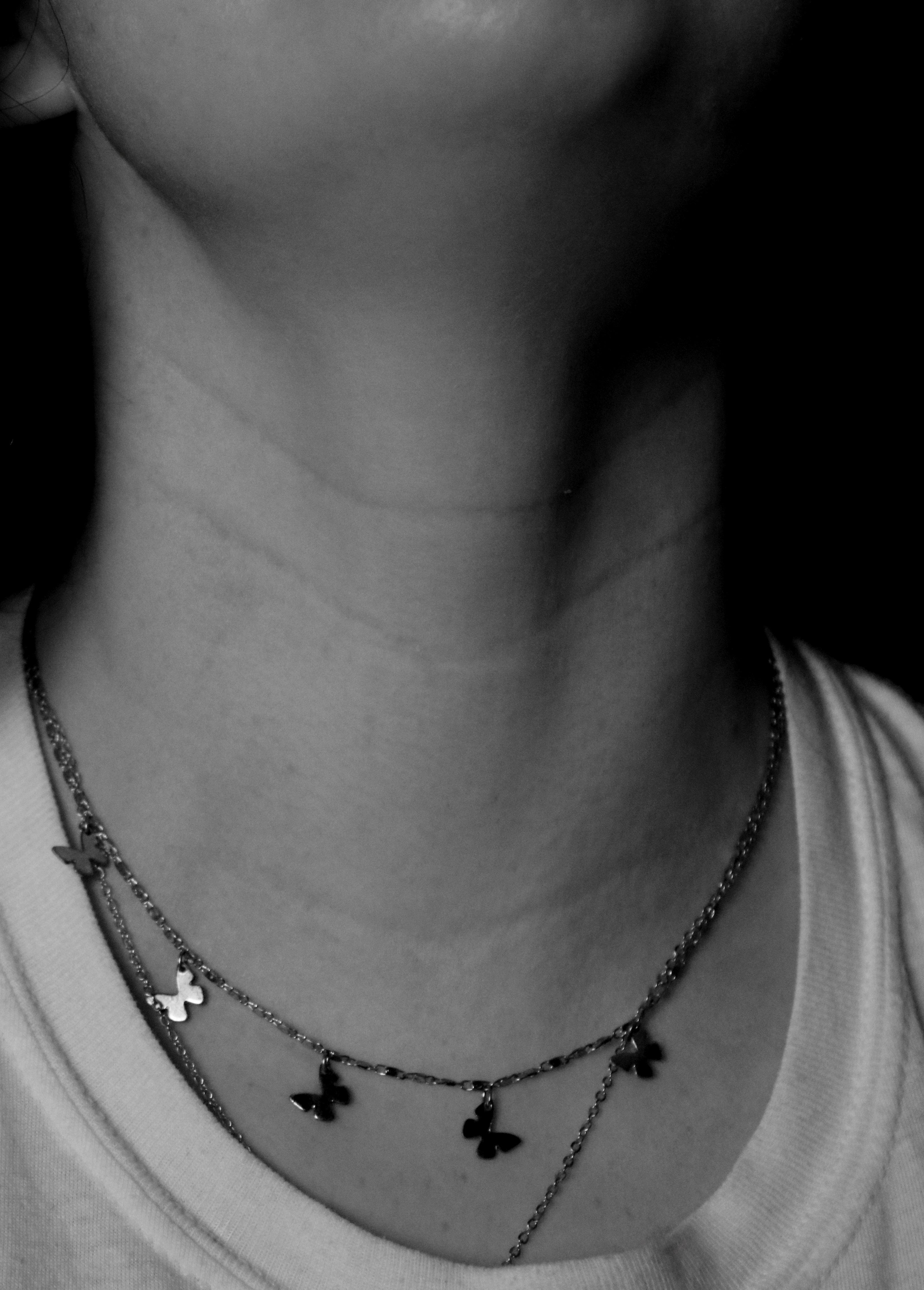
begins to ablaze, I stand back and watch the last pieces of my uncle burn away. Though the blood-soaked carpet and mattress are not very pleasing to look at, it was all that I had left. He only died yesterday, and now I don’t have anything.
The next morning, a flood of people come in and out, all of some importance. Every single person exclaim how sorry they are and how it is such a tragedy – as though they hadn’t watched him suffer for decades. I can’t help but feel bitter and betrayed. These people had watched him stumble up from one pub to another, encouraged him to have ‘one for the road’, served him his bottle of wine and watched him drink himself to death – but it is a ‘tragedy’ what has happened.
After the funeral, we go out for a meal. How can people eat after such a thing? It is
an unspoken rule that we won’t consume alcohol today. Though my papa loved a pint of Guinness to calm his nerves or a slug of Grouse to settle his thoughts, he doesn’t tonight, and probably won’t for at least the next week. Though the funeral is as sad as funerals can get, everyone is laughing and smiling whilst they celebrate Fred’s life with their diet cokes at the old hotel known for wakes.
“I’m sorry” he said obviously in pain.
He silently cried as the paramedics attempted to ease his pain with every medication under the sun.
“I just couldn’t cope with Irene’s death, and mum, I just miss her...
“I’ll be with her soon… youyou’ve got it all, everything that is mine, you and the kids keep it, what is mine is yours.
“The wine eased it..”
He hid it for so long, or at least he thought he did. Sneaking out the kitchen for a cigarette but taking a couple of minutes longer than normal. Sipping soundlessly from the same orange flavoured Lucozade bottle from five years ago, with out-of-date packaging. Giggling for a bit longer than everyone else sat in front of the fire. Shakey hands. Slurring speech. Sleepless nights. It was like a secret that everyone knew, but no one mentioned a word. It
was never spoken about. It was the elephant in every room he walked in, like a shadow that followed him, even when it was hazy. We all know how he died and how brutal it was, the blood that saturated the carpet, the vomit covering his chin, his painful grunts, those gruesome details weren’t a secret. It was the talk of the town for at least seven days straight. The nights he spent alone in his silent kitchen, surrounded by empty bottles of the local shops cheapest white and mouldy bread, sat in clothes that hadn’t been washed in months, pining for the love of his life who passed three years prior, those nights were the biggest secret of them all. The days when the hair of the dog was the only thing that could make him smile, or the afternoons spent cleaning up the vomit from the night before, or that month in June, way before gran died when he got sober, they were all so quiet. The shopkeeper, the postman, the neighbours, the guy he shot pigeons with, the barman, the people behind him in the wine queue, the client that always offered him a drink after a long day, the friend from primary school that crossed the road when he started to smell Zinfandel on his breath. They were all voiceless until that afternoon in July.
“Fred, aw he was some boy! Kent how to have a laugh didn’t he!”
“He used to come up here all the time in the summer months, we’d shoot the pigeons and that wee mutt of his, what happened to him, does wee Jim still look after it or did that mad woman take it?”
“He could fair have a swalla couldn’t he! If he wasn’t in the wee
shop then he’d be in the pub across the road, mind you what’s that called again?”
In 2022, 1,276 deaths registered within Scotland were alcohol-related. Approximately 66% of these deaths were male, and 34% were female. Scotland continues to have the highest number of alcohol-related deaths in the UK. In 2001, Scotland’s alcohol-related death rate was almost three times as high as England. Children or young relatives of those who are alcohol-dependent are more likely to experience loneliness, depression, anxiety, guilt, anger issues, and/or an inability to trust. In the UK, around 6,665,000 people are expected to develop PTSD (post-traumatic stress disorder) or CPTSD (complex post-traumatic stress disorder) at some point in their lifetime. Growing up an alcohol-dependent relative can result in the development of PTSD in adulthood. CPTSD is similar to PTSD in terms of symptoms however
it develops over time through exposure to long-term trauma.
I greet the chefs with a smile and nod, because I know if I don’t then I’ll get a bad batch of macaroni on my break. I hang up my coat alongside the others and breathe, noticing my manager sniffing as she left the grubby staff toilet, she smiles and nods. I open the grey door screaming in desperation for a lick of fresh paint. I step up the singular step onto the bar and greet the regulars, as though I’m above them in some way.
“Anybody needing another one?” I ask, even though I know fine well that nobody ‘needs’ another one.
“Aye darling, I’ll take a pint of Tennant’s for wee Jimmy and actually gee me one of them as well! Oh, one fir yersel as well wee hen,” I nod and thank him for the tip, pouring the two pints.
“That’s £8.40 darling,” I say holding the card machine out, distracting the man who looks as though he hasn’t slept last night.
“Cheers hen!” he exclaims, holding his cold pint up to me smiling a half smile.
My shift drags in, as it always does. My older manager tries cracking jokes to help it go faster, but I’ve heard the same joke four times now.
“What do you call a bear with no teeth? …A gummy bear!” I smile and laugh pretending like he didn’t tell me twenty minutes ago and forgot.
A couple walk in the front door, pausing to take their winter jackets off before scanning the draught lagers. The man appears early sixties due to the last remaining hairs on his head slowly greying and the embedded wrinkles in his tired looking face. The woman is mid-fifties and dressed very nicely for her age, a burgundy skirt paired with a cream
blouse, though she appears rail thin as the skirt hangs off of her weak hip bones. As I step forward to greet them, I take note of the reminiscent smell of cigarettes, the same brand as Fred’s.
I’m in the back of my uncle’s black Ford Fiesta that was quite literally falling apart, the trail of smoke entering my young lungs despite his efforts of putting the window down. He’s adjusting his cap as though he’s nervous about something. He’s pulling over on the fast road, opening the door, sneaking around the back of the car to vomit.
“What can I get for you guys tonight?”
“I’ll have a large pint of Tennant’s and for the lady, what are you going for honey?” he smiles in awe of the frail woman.
“You don’t have Zinfandel, do you?”
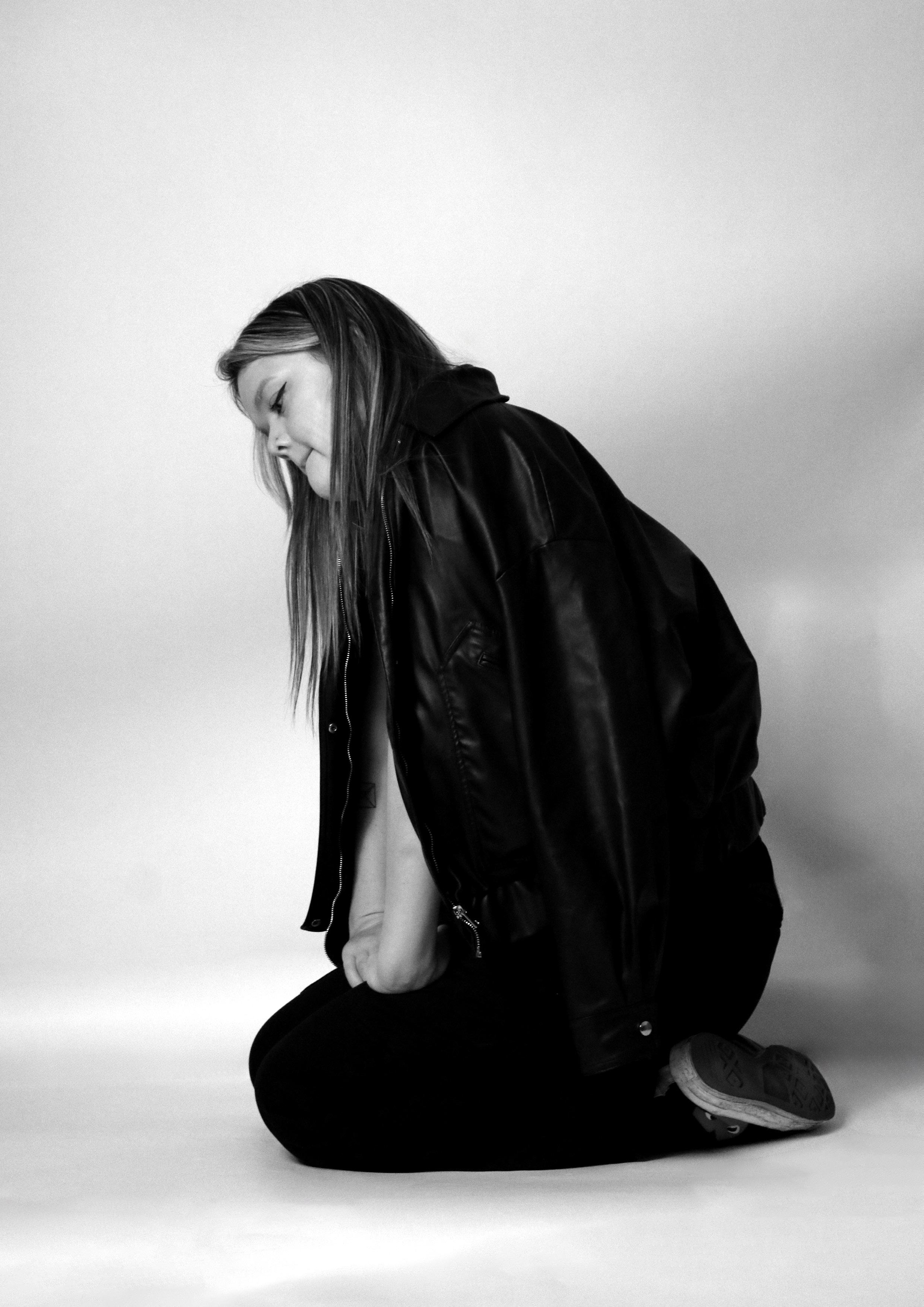
 Fiona Anderson
Fiona Anderson
Growing up with a parent who is alcohol dependent can greatly affect children in a variety of ways. Children of alcohol dependent parents are at a higher chance of developing trust issues and anxiety. Though as grown-ups, they may have worked through it, some are still heavily affected by their parent’s previous alcohol habits – like Rachel Booth.
It was a Sunday morning and tenyear-old Rachel had stayed over at her aunt’s house to allow her mum Fiona to enjoy a relaxing night without the stress of looking after a child.
Rachel awoke in the morning feeling tired from texting her mum all night demanding to know where she was and who she was with. After hearing nothing from her mum throughout the night, she had a subconscious feeling that something was wrong and ordered that her aunt drive her home immediately after their breakfast of tea and toast.
“We went in the house and it was just trashed,” Rachel says.
Rachel went into detail stating that Fiona had ripped their shower door and breakfast bar off of the walls, and that “every dish in the house was smashed.”
“The only places she didn’t touch were my room and my playroom which the doors were shut and everything was as I left it,” says Rachel.
Despite her young age, Rachel had given her mum many chances and ultimatums – it was either Rachel or alcohol. Thankfully, Fiona choose Rachel.
holics Anonymous and hasn’t looked back.
“I think it was Phil Mitchell from EastEnders was in AA at the time, and they’d show him sitting in the room and it was just strange the way it’s portrayed on TV,” says Fiona.
She recalls looking through the yellow pages, but still to this day, she doesn’t know what made her call or attend that first meeting.
“I remember just being blown away from this lady talking about feelings and emotions and the reasons why she drank,
“I was like oh my god, she could be talking about me, and it just felt like I was in the right place.”
She went to a couple of meetings by herself, but with Rachel nearing the end of primary school, she couldn’t align herself with attending meetings and having time to adhere to Rachel so she brought her along with her.
“I always found it so fascinating because you go into these meetings and there’s so many different people there –all ages, all backgrounds,
“I remember thinking like there’s no way you’ve done that or you’ve been that person,” says Rachel.
When Rachel was younger, she held a lot of resentment and hatred towards her mum but AA completely changed that for her. She was able to learn that her mum was suffering with a disease, and it wasn’t personal or simply to spite her.
After that night, Fiona went to Alco-
From a very young age, Rachel knew that her mum had a problematic relationship with alcohol.
Fiona would hide bottles of wine throughout the house – down the side of the fridge, next to the heater, in cupboards, everywhere. Every time, Rachel found a bottle, she would move it or pour it out. Fiona would drink in secret but as soon as Rachel smelled the alcohol on her breath, there was always an argument resulting in endless tears and screaming.
There was an unspoken rule between the mother and daughter – Fiona’s drinking was to be kept a secret.
Rachel says “I don’t think anyone would have believed me anyways because she could fake it really well, “My great gran came to live with us not long before my mum got sober and I think she was the only one that had a hunch about it.”
Fiona’s biological father was alcohol dependent and passed away due to his excessive consumption. Fiona’s biological aunts and uncles on her father’s side also developed problems
with alcohol. The same with Fiona’s grandparents on that side. Fiona’s sister has active alcohol and drug misuse problems.
It was always a concern for Fiona that she would “end up like them,” so when she found herself in AA, it wasn’t a “lightning bolt out of the blue.”
Fiona got sober when Rachel was ten-years-old but was actively drinking through Rachel’s informative years.
“She never learned the proper way or right way of support,
“What she learned was how to keep secrets and that’s something that I had carried with me for about 5 years into my sobriety”.
It devasted Fiona to realise that her own daughter did not trust her.
“There is nothing in this world that means anything more to me than my relationship with
Rachel learned how to keep secrets and that’s something I had carried with me for about 5 years into my sobriety
my daughter, even back when I was drinking,
“But it was just not enough to stop me from drinking.”
Fiona remembers Rachel would come to her crying and begging her to stop drinking.
At the height of her drinking, Fiona was struggling with selfharm, alongside depression and anxiety. At the time, she didn’t correlate these issues with her drinking, and would frequent her local GP seeking support and advice. She now realises her trips to the doctors were a cry for help, and her excuses to attempt sobriety – stating “there was always something like I had depression, I had anxiety, I was self-harming, so I had to stop drinking for a wee while until I got it under control.”
Rachel recalls that Fiona
would self-harm and then wrap herself in bandages and blame it on her eczema when questioned. She would crawl into bed with Rachel and despite her young age, Rachel knew that it wasn’t her eczema that was causing her bandages to be soaked right through.
Rachel grew used to her mum’s drinking. She tells the following story as though it was yesterday – it was over ten years ago.
“I remember she went on a walk with our wee Chihuahua to the local shop to buy cigarettes,
“I had watched Camp Rock twice in what should have been a fifteen-minute journey.”
Her mum’s partner at the time had stopped by their house, finding seven-yearold Rachel watching the TV by herself. After realising that Fiona had been missing for two or three hours at that point, he phoned the
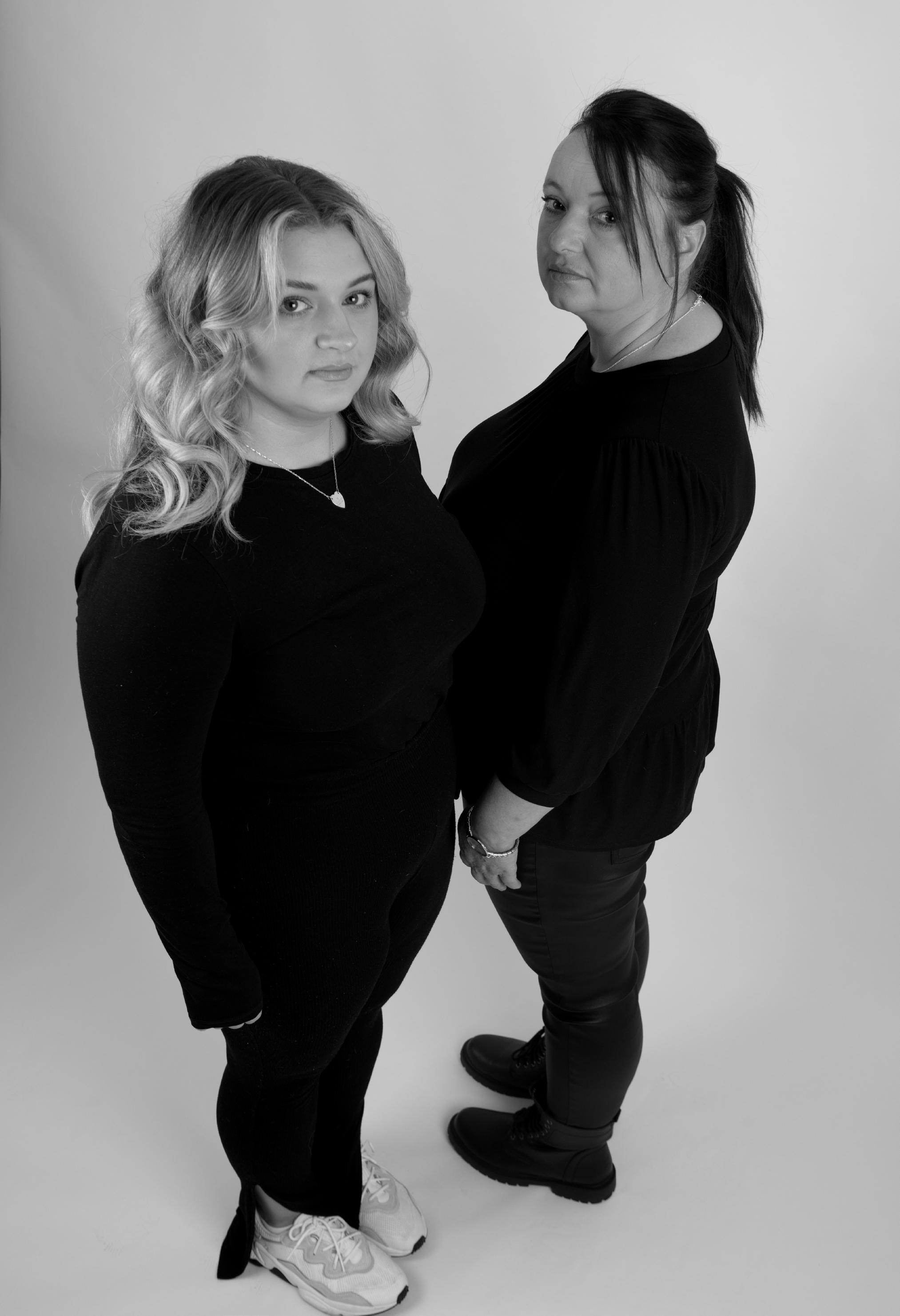
police and they found her wandering the streets drunk with no dog. Eventually the police found the dog and though it is a frightening experience for a young child, Rachel tells the story as though it’s about her mum simply walking the dog – emotionally blocking out the traumatic experience.
Fast forward to Rachel becoming immersed in the drinking culture embedded within the south-west of Scotland.
By the time Rachel was fifteen, Fiona was around 5 years sober. Fiona allowed Rachel to have alcopops at family parties, or New Year’s Eve but it was “only under my supervision.”
Since they had both experienced Fiona’s drinking together, they were ex-
tremely open with eachother and had built a lot of trust since those darker days.
“I remember one time, Rachel came in drunk from being at the park, on cider, she got grounded,
“Not because she was drunk, but because she never told me.”
Fiona prioritised rebuilding the trust that they had lost and made sure that Rachel was very aware of the consequences.
“When she started going to pubs and clubs, it was a wee bit different because she was grown up,
“I think as a parent you have to let go of the ropes sometimes and let them learn”.
Rachel says that when she
was younger, a lot of her friend group were influenced by their older brothers and sisters to drink alcohol and take drugs.
Although she did partake in that culture, she has cut ties with a lot of those friends as she grew older due to differing priorities.
Though Fiona states that Rachel can now leave alcohol around the house, and she doesn’t even think twice about it, Rachel says that even to this day, she is “paranoid of going into the house stinking of drink and it tempting her [Fiona] in any way shape or form.”
For a while, Fiona struggled to be around drunk people as it was triggering for her.
Thirteen-years sober, Fiona says being sober “doesn’t stop me from
I am still paranoid of going into the house stinking of drink incase it triggers mum

living my life,
“There is nothing I cannot do in my life because I don’t drink. I can go to parties, gigs, nights out, literally anything. I just do not drink.”
She said that she has noticed that it affects her people more than herself. They have told her to ‘just have one’ when she’s been holding a can of Coca-Cola.
“I’ve started buying non-alcoholic beverages because when people are drunk, they don’t know if you’re buying non-alcoholic drinks or not so they don’t ask questions.”
She jokes that whenever people start talking “rubbish” it is her sign to leave, but she says that’s just a general rule in life!
Rachel is now 23 and has a very strong opinion on the alcohol misuse culture within Scotland. “It baffles me how weed is illegal but drinking alcohol and smoking cigarettes are both so socially acceptable.”
She adds that marijuana doesn’t alter someone’s personality as much as alcohol does.
She is aware that all substances can have a negative effect on different people but she is confused as to why alcohol (which is classed as a drug) is so normalised, especially in
Scotland and definitely in her home county of Ayrshire which is located just outside of Glasgow.
Fiona attended AA sessions within Ayrshire saying that “I’ve seen alcohol ruin so many lives. I’ve seen people die. I’ve seen people that went to AA that have so wanted to get sober and they just couldn’t.”
Rachel comments on the normalisation of alcohol misuse saying, “there is no social event that I can go to without drink being a sole purpose or subject of going out.”
In Scotland, every single event has alcohol involved – nights out, sports, baby showers, christenings, weddings, funerals etc.
During the Christmas period, Rachel had many nights out planned whether it be with her work, friends, or family. In January, she noticed thar her body was exhausted, her bank account was drained and her head was not in good place – simply due to alcohol.
Rachel says that since January, she had hired a personal trainer and only consumes alcohol when she can afford it, can be bothered, and actually wants to. She adds that she has never felt more clearer mentally.
Additionally, Fiona and Rachel’s relationship has went from “strength to
strength” since the start of Fiona’s sobriety.
Rachel doesn’t even question her mum’s sobriety now, and they have a “phenomenal” relationship.
Rachel says that her mum’s dependency on alcohol will always follow her. She can always tell if someone’s mood is off, or if an argument is about to start. Though it can be seen as a negative thing, Rachel views it as positive as she is very open about her mum’s previous experiences with alcohol
and her friends know they can always count on her for advice.
If you know anyone who may be struggling Fiona recommends to avoid directly confronting them as during her struggles, she ignored everyone and pushed them further away. Instead, she recommends that if you have an inclination, trust it and always be there for them. Rachel recommends suggesting activities that don’t involve alcohol such as meeting up for a walk or grabbing a coffee together.
I’ve
alcohol ruin so many lives
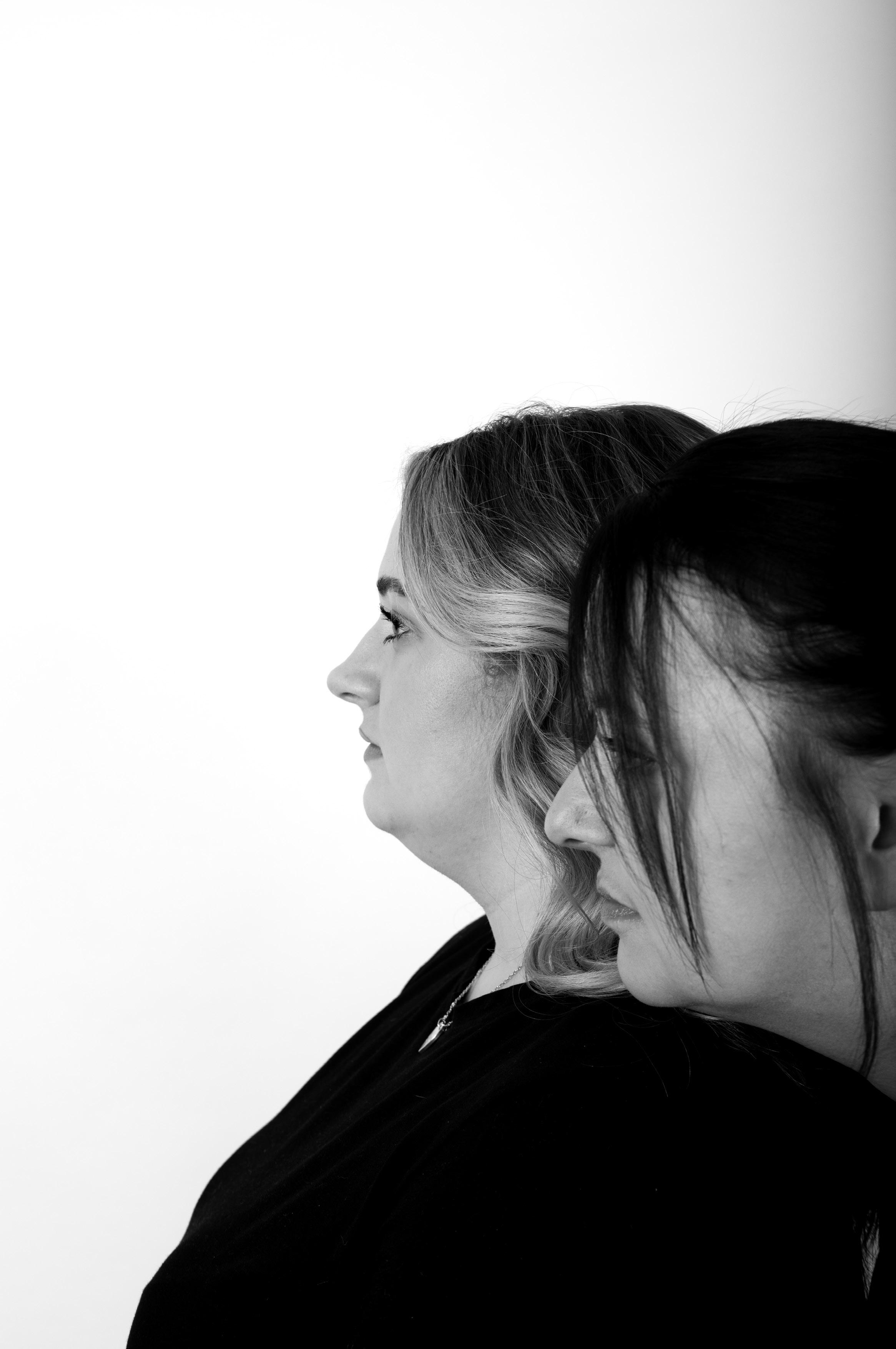
Though Gen Z have been described as the ‘sober’ generation, the peer pressure to consume alcohol is still very much present within our society. 1 in 8 young people within Scotland have consumed alcohol by age fifteen, and just over eighty percent of Scottish people have experienced the pressure to consume alcohol. So, it begs the question, how and why are young people saying ‘no’ to alcohol?
Alcohol is part of everyday life within Scotland, whether it be over dinner, in the pub or after work. According to Scottish Health Action on Alcohol Problems, just over forty-three million litres of alcohol was sold in 2021. Additionally, we know that historically, Scotland is a drunk nation.
Although things could be changing for Scotland as young people seem to be heading in the health-forward direction. With terms such as ‘sober-curious’, Gen Z are prioritising their mental health and bank accounts by finally putting the bottle down.
Gillian Cockburn, a registered therapist and accredited sobriety coach residing within Aberdeenshire, has prioritised the health of herself and her clients over the past couple of years. She says that being being sober-curious is “very much a new term,” but
it means that an individual is already questioning their relationship with alcohol.
Gillian has been sober since 2020 after developing a “toxic” relationship with alcohol.
In her early forties, she finally realised that drinking alcohol didn’t benefit her at all – she didn’t feel good, she didn’t like how much she thought about drinking all the time and she didn’t like the pressure from friends to ‘just have one’.
Mrs Cockburn began sober coaching after working for a HR and recruitment company in Canada. At first, she trained as a life coach transferring a lot of her skills from her previous work into her newfound love for coaching. Though becoming a sober coach was a large financial investment for her, she hasn’t looked back.
She now coaches people through sobriety via 1-1 sessions as well as group sessions and she operates the ‘Sober in the City and the Shire’ Facebook support group which has led her to working in the third sector with Alcohol & Drugs Action (ADA).
Gillian’s mantra revolves around the idea of not having to hit ‘rock bottom’ in order to receive help.
“Why would you wait? Why wait
until it gets worse before you help?” she says passionately.
When asked about how to deal with pressure to drink alcohol from friends and family, she says, “I don’t think a lot of people want to hear this,
“A lot of us get into groups where our friends develop into drinking buddies, and if you think about what would happen if you took the alcohol away and hung out with this person, could you still be friends with them?”
She continues by saying if you can’t partake in sober activities such as going to the cinema, going on walks, grabbing a coffee, then they may be just a ‘drinking buddy’.
The reasoning behind the decline in drinking amongst young peo ple in particular is definitely com plex and offers differing opinions. Through a survey conducted Sober, some reasons include: avoid hangovers, work commit ments, mental health and just general unenjoyment towards consumption of alcohol.
Alongside this, it was found that young people are more open to the idea of sober curiosity saying that they often find themselves basing their weekends on their consumption of alcohol instead
get deal alcohol says, want where drinking about took out still you activities coffee, ‘drinking decline peocomopinions. by to committowards the that to saying themselves their instead of

The pressure to drink is still there, but is Gen Z’s sober-curious mind- set exactly what Scotland needs?
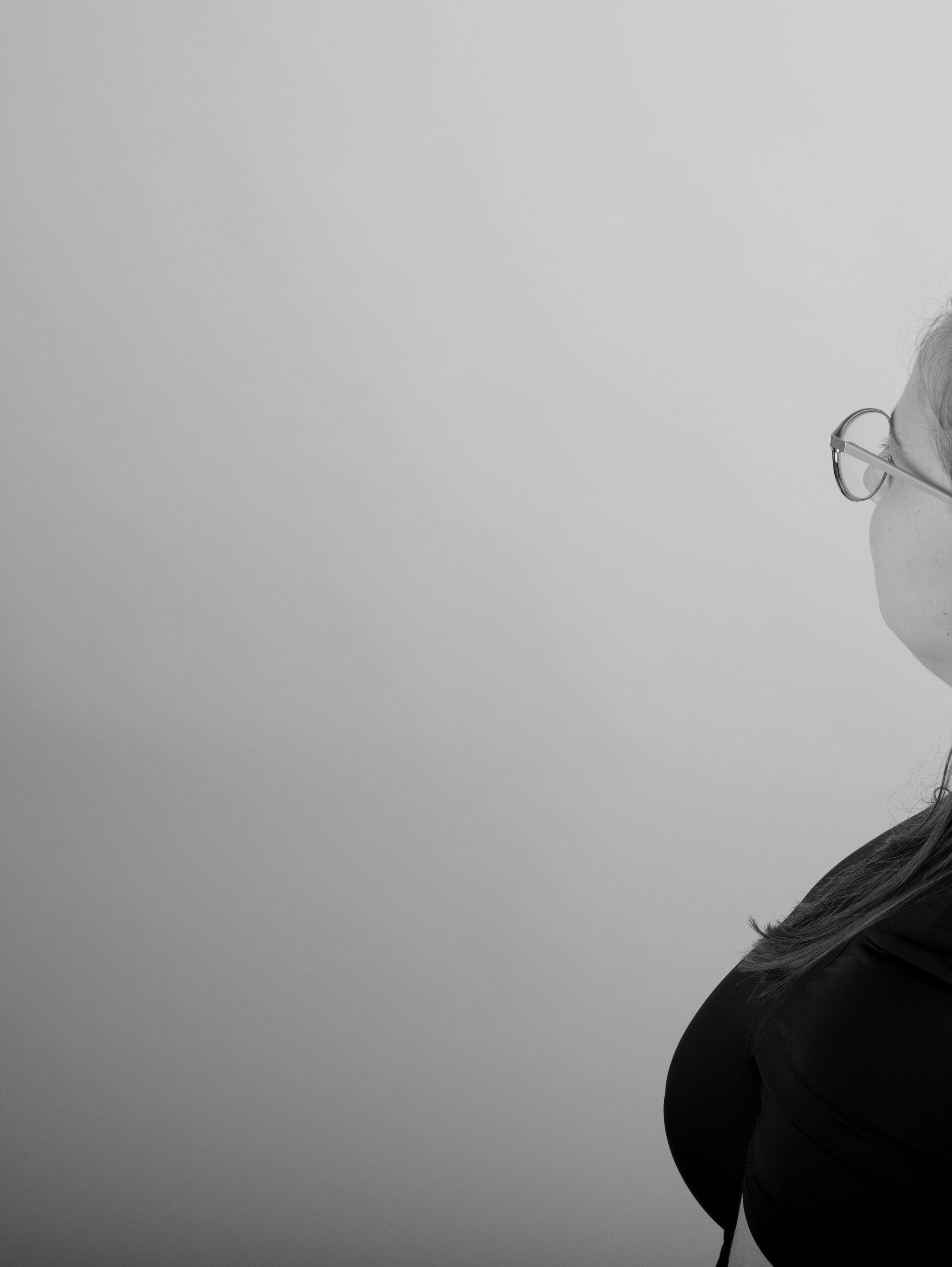
activities they enjoy, they want to reduce the amount of money that they spend and they want to improve their lifestyle e.g., align with fitness goals.
Despite the popularity of quitting booze, the pressure to consume alcohol is quite literally everywhere in Scotland – it is unavoidable.
Gillian comments on the drinking culture within Scotland saying that “it is heart-breaking.”
“I think it’s preventable. Absolutely. It is preventable because we don’t need alcohol. We weren’t born with a need for alcohol. We were born with the need to nourish ourselves with healthy food and to hydrate ourselves.”
She believes that marketing has a lot to do with the attitudes of how Scottish people view alcohol.
“A lot of big alcohol companies, they’re very very clever at making us believe that it’s what we need to survive. There’s this idea that we need to drink to survive.”
She then repeats her point about drinking buddies and the pressure that stems from friends and family.
Louise Apicella a 20-year-old travel agent from Prestwick describes her relationship with alcohol as “varied.”
She experienced peer pressure from a couple of her friends at school, saying “she was trying to push me into it [drinking alcohol] so she could have her fun as well.”
Louise was diagnosed with Asperger’s in her early teens which for her meant that all she wanted was to “fit in.”
“I just wanted friends, I didn’t want to be different so I drank,” she says.
She continues anxiously saying “I felt like I had to [drink] or else they wouldn’t want to be friends with me.”
Eventually, this led her to drinking by herself in her room, hiding alcohol from her dad.
“I was basically just going through a really hard time,
“Whenever I drank, I felt happy so I thought I could recreate that feeling so I just kept drinking alone in the house but I didn’t want my dad to know.”
After Louise lost her mum during the Coronavirus pandemic in 2020, she grew closer to her dad and confided in him and broke contact with her ‘drinking buddy’.
She says that she wishes her school had more information on how to deal with peer pressure, agreeing that alcohol consumption is somewhat ‘normalised’ within schools. She says it’s more about prevention of getting too drunk, rather than promoting not drinking. She also notes the considerable amount of pro-alcohol content on TV shows such as Euphoria and Skins and the glamourisation of it. Louise now drinks alcohol very rarely and has very supportive friends alongside her boyfriend who is pretty much sober.
In addition, the cost-of-living crisis has affected the UK in terms of alcohol consumption as in 2023, almost 50% of the UK stated that the price would of alcohol would discourage their intake. The pricing has increase due to the war between Russia and Ukraine alongside Brexit creating package shortages and upping the prices of ingredients within alcoholic products such as sugar.
Prior to the cost-of-living crisis, the Coronavirus pandemic in 2020 resulted in lockdowns which shut down pubs, clubs and bars resulting in a reduction of alcohol consumption amongst young people.
So why are young people saying no to alcohol?
Well, the day after just isn’t worth it. We’ve all been there, experienced the horrific shakes and back and forth trips to bathroom and Gen Z have simply had enough. They are instead prioritising developing healthy relationships that don’t solely revolve around their local night-

club. The cost-of-living crisis alongside CO-VID 19 has had an immense impact on young people and with the rising costs of alcohol, it simply isn’t worthwhile.
How are young people saying no to alcohol?
They simply opt for alcohol-free beverages – in the study conducted by Sober, almost all participants had tried N/A products, the most popular being mocktails followed by N/A ciders and beers. They are also saying ‘yes’ to activities without alcohol. They have no doubt experienced the peer pressure before and know how to not give into it now.
